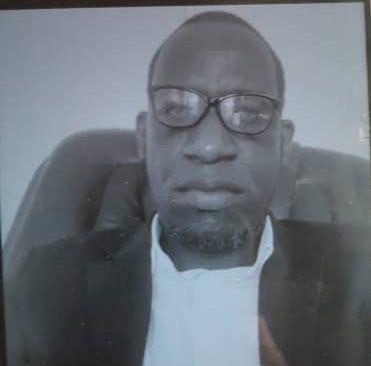Bujumbura : secret services arrest a DRC embassy employee, a prominent Banyamulenge figure

SOS Médias Burundi
Bujumbura, July 28, 2025 – The arrest of Laurent Ruboneka Musabwa at dawn on Sunday by agents of the National Intelligence Service (SNR), police, and military personnel is causing serious concern within the Banyamulenge community and diplomatic circles. While Burundian authorities remain silent, this arrest is part of a tense regional climate marked by suspicions targeting members of the Congolese diaspora and refugees from the Banyamulenge community.
Laurent Ruboneka Musabwa is secretary of the Shikama Banyamulenge Mutual Society in Bujumbura, president of the survivors of the Gatumba massacre, and an employee of the DRC embassy. The Gatumba massacre, which occurred on August 13, 2004, in a camp run by the UNHCR, claimed the lives of more than 160 Congolese people, mostly Banyamulenge, about twenty kilometers from Bujumbura, Burundi’s commercial capital, where UN agencies and the central administration are located, and not far from the Burundi-DRC border.
A forceful operation at dawn
On the morning of Sunday, July 27, Burundian soldiers and police officers, some in civilian clothes, surrounded the house where Laurent Ruboneka Musabwa resided, in the Rohero neighborhood of Bujumbura, starting at 5:00 a.m. Around 7:00 a.m., they entered the home and demanded that he follow them. Laurent Ruboneka Musabwa contacted his superiors at the embassy, who advised him not to comply until their arrival. Despite this, the officers forcibly removed him, ignoring diplomatic practices. The reasons for the arrest are completely unclear.
No legal proceedings have been announced. Law enforcement officials report the arrival of a delegation from Kinshasa’s intelligence services wishing to speak with him. According to information gathered, he was taken to the Burundian army’s general headquarters, but his relatives are unable to locate him precisely or contact him.
A man under pressure and a climate of suspicion
Laurent Ruboneka Musabwa has been under pressure for several weeks. Relatives claim he feels under surveillance and is the subject of discrimination even within his professional environment. A colleague, speaking on condition of anonymity, testifies :
« For several weeks, Laurent has been telling us he feels he is being followed. Anonymous reports against him have been circulating, without evidence, and some colleagues at the embassy are beginning to sideline him. »
Internal sources speak of reports coming from members of the Banyamulenge community themselves, which were forwarded to the intelligence services. However, no clear basis has been presented.
An explosive regional context
This arrest comes amid heightened regional tensions. In recent months, several members of the Banyamulenge community, including refugees, have been arrested in Burundi, accused of collaborating with the M23 or spying for Rwanda.
The M23, a former rebel group that retook arms at the end of 2021, accuses the Congolese authorities of failing to honor their reintegration commitments. Kinshasa accuses Kigali of supporting the M23 and the Congo River Alliance, an allied politico-military movement. UN experts report that Rwanda is deploying at least 4,000 troops to support the rebels.
As part of its military cooperation with the DRC, Burundi under President Évariste Ndayishimiye—who accuses Paul Kagame of invading Congo and planning incursions into Burundi—is deploying approximately 10,000 troops against the M23. These troops are fighting alongside the FARDC, the Congolese loyalist army, and the Wazalendo militias supported by the Kinshasa authorities. Kigali denies these accusations and accuses Kinshasa of arming the Hutu genocidaires of the FDLR to destabilize Rwanda. Congolese President Félix Tshisekedi, for his part, describes the FDLR as a residual force that no longer represents a threat.
A worrying signal for the Congolese diaspora
The arrest of Laurent Ruboneka Musabwa, in this context of regional tensions and mistrust towards the Banyamulenge community, raises serious questions about cross-border political pressures and respect for the fundamental rights of Congolese diasporas living in the small east African nation.

